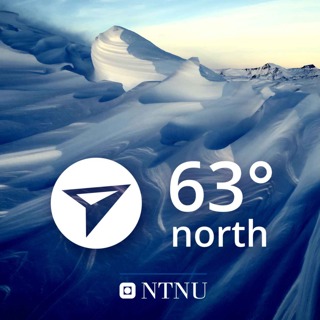
Shedding light — on the polar night
Krill eyeballs. The werewolf effect. Diel vertical migration. Arctic marine biologists really talk about these things. There’s a reason for that — when it comes to the polar night, when humans see only velvety darkness, krill eyeballs see things a little differently. And when the sun has been gone for months, during the darkest periods of the polar night, the moon does unexpected things to marine organisms. Learn more about what biologists are figuring out about the workings of the polar night — and what it means at a time when the Arctic is warming at a breakneck pace. Our guests for this episode were Jørgen Berge, Geir Johnsen, Laura Hobbs and Jonathan H. Cohen. You can see a transcript of the episode here. Fridtjof Nansen’s book about his Arctic expedition is called Farthest North. You can also read about the other influences his pioneering journey had on science here. You can also read about Geir Johnsen’s different research projects in a series of articles from Norwegian SciTech News. The findings of the polar night team are so surprising that they actually wrote a textbook about it, edited by Jørgen Berge, Geir Johnsen and Jonathan H. Cohen. The book is titled Polar Night Marine Ecology: Life and Light in the Dead of Night. Here are some of the scientific articles describing the polar night research: Berge, J., Båtnes, A.S., Johnsen, G. et a. (2012) Bioluminescence in the high Arctic during the polar night. Mar Biol 159: 231-237 Berge, J., Renaud, P. E., Darnis, G. et al. (2015) In the dark: A review of ecosystem processes during the Arctic polar night. Progress in Oceanography, 139: 258-271 Berge, J., Daase, M., Renaud, P.E. et al. (2015) Unexpected Levels of Biological Activity during the Polar Night Offer New Perspectives on a Warming Arctic Current Biology,25, 2555-2561. Cohen J.H., Berge J., Moline M.A. et al. (2015) Is Ambient Light during the High Arctic Polar Night Sufficient to Act as a Visual Cue for Zooplankton? PLoS ONE 10(6): e0126247. doi:10.1371/journal.pone.0126247 Ludvigsen, M., Berge, J., Geoffroy, M. et al. (2018) Use of an Autonomous Surface Vehicle reveals small-scale diel vertical migrations of zooplankton and susceptibility to light pollution under low solar irradiance. Science Advances 4: eaap9887 Hobbs L, Cottier FR, Last KS, Berge J (2018) Pan-Arctic diel vertical migration during the polar night. Mar Ecol Prog Ser 605:61-72. Berge, Jørgen; Geoffroy, Maxime; Daase, Malin; Cottier, Finlo Robert; Priou, Pierre; Cohen, Jonathan H.; Johnsen, Geir; McKee, David; Kostakis, Ina; Renaud, Paul Eric; Vogedes, Daniel Ludwig; Anderson, Philip J.; Last, Kim S.; Gauthier, Stephane. (2020) Artificial light during the polar night disrupts Arctic fish and zooplankton behavior down to 200 m depth. Communications Biology. 3 (102), 10.1038/s42003-020-0807-6 Hosted on Acast. See acast.com/privacy for more information.
27 Jan 202124min

Sneak peak
Ever wonder what's happening in some of the more far-flung places on the planet? In 63 Degrees North, we'll bring you stories from Norway every week about surprising science, little-known history, and technology and engineering discoveries that can help change the world. The first of five episodes drops February 1. Brought to you by NTNU, the Norwegian University of Science and Technology. Hosted on Acast. See acast.com/privacy for more information.
20 Jan 20212min




















